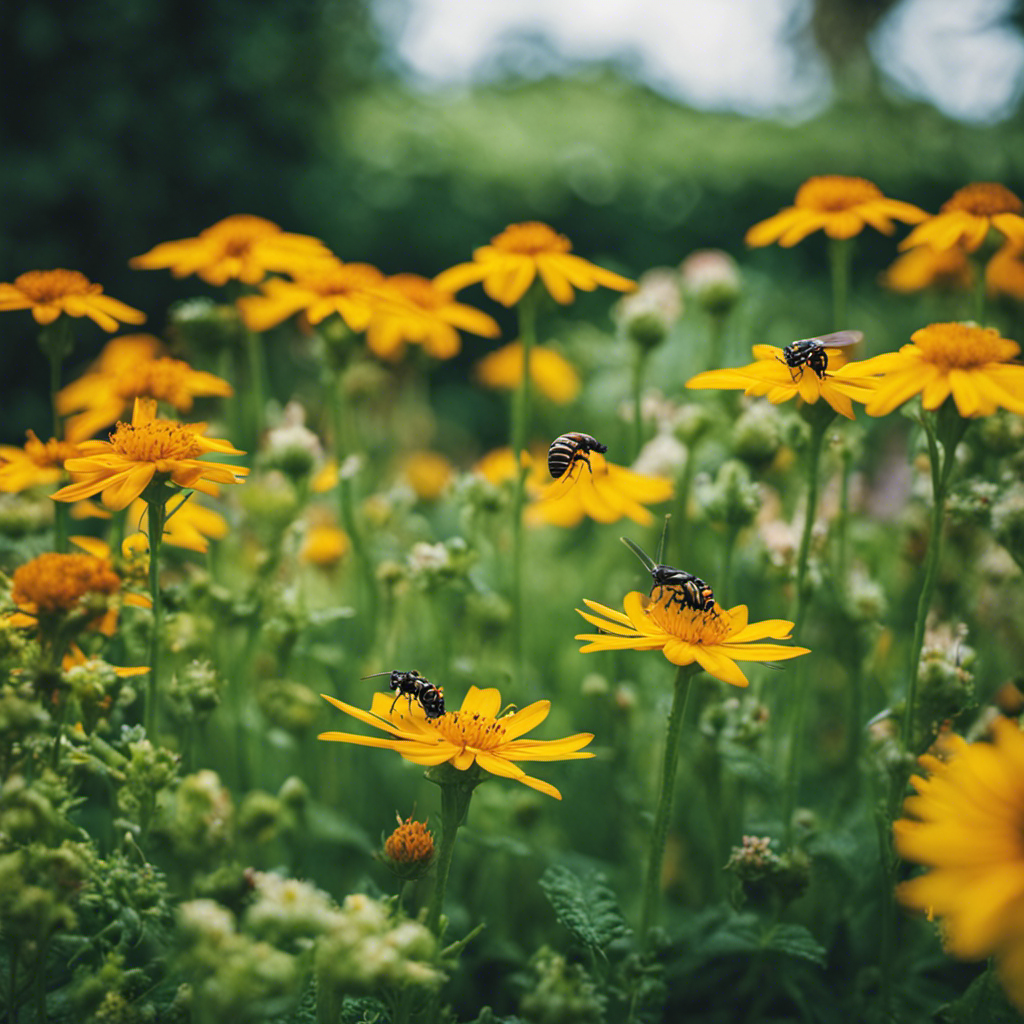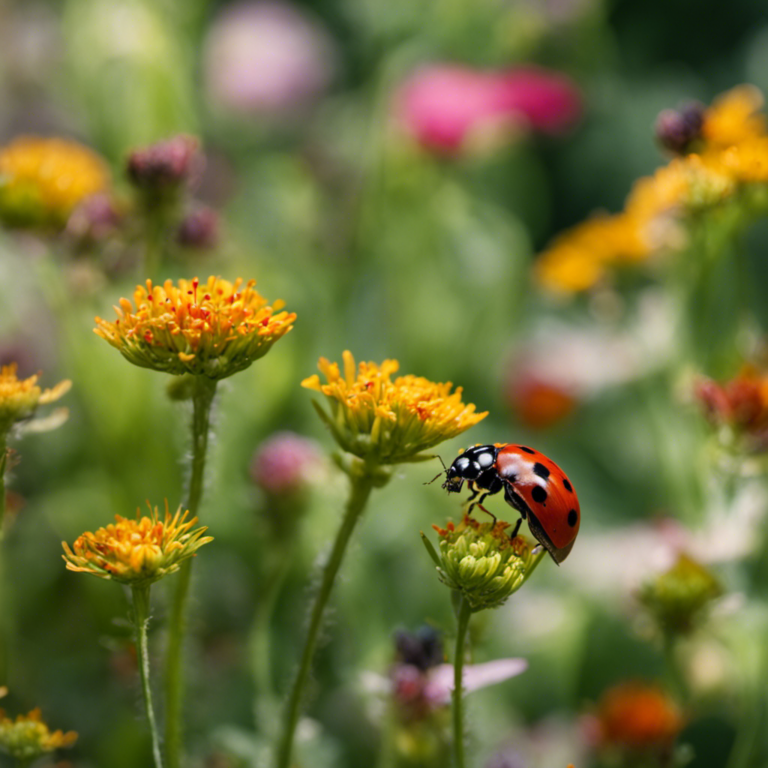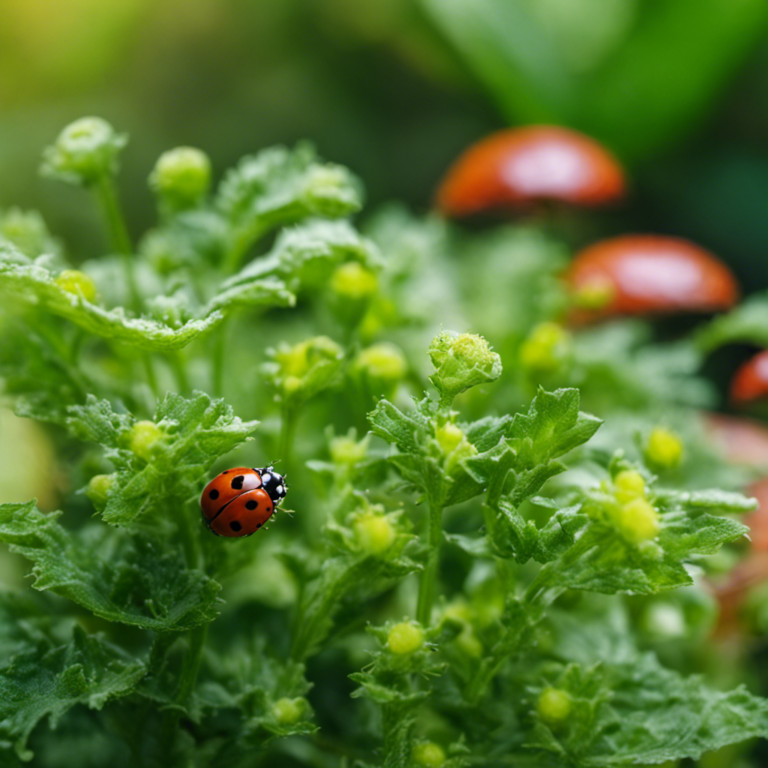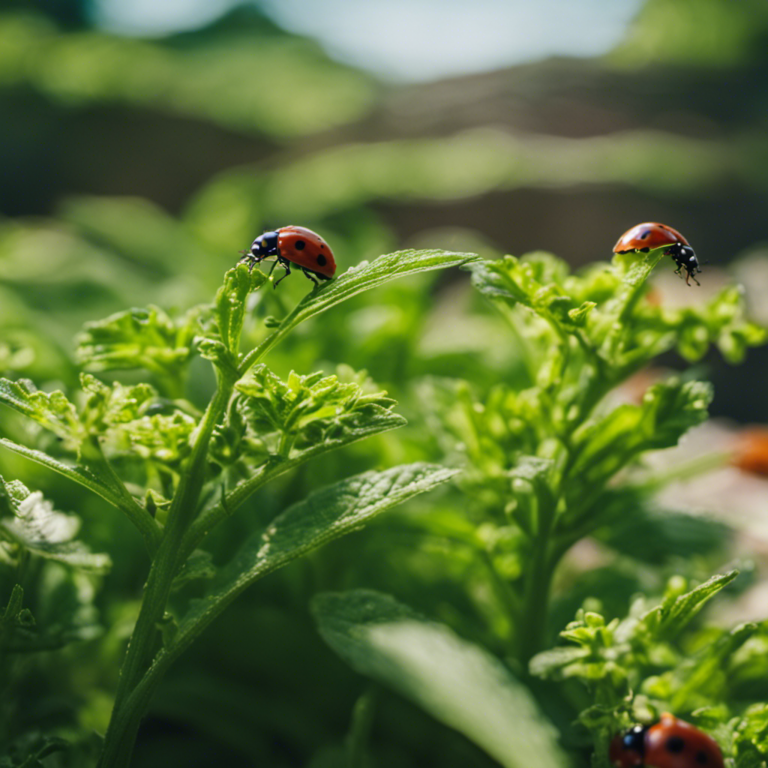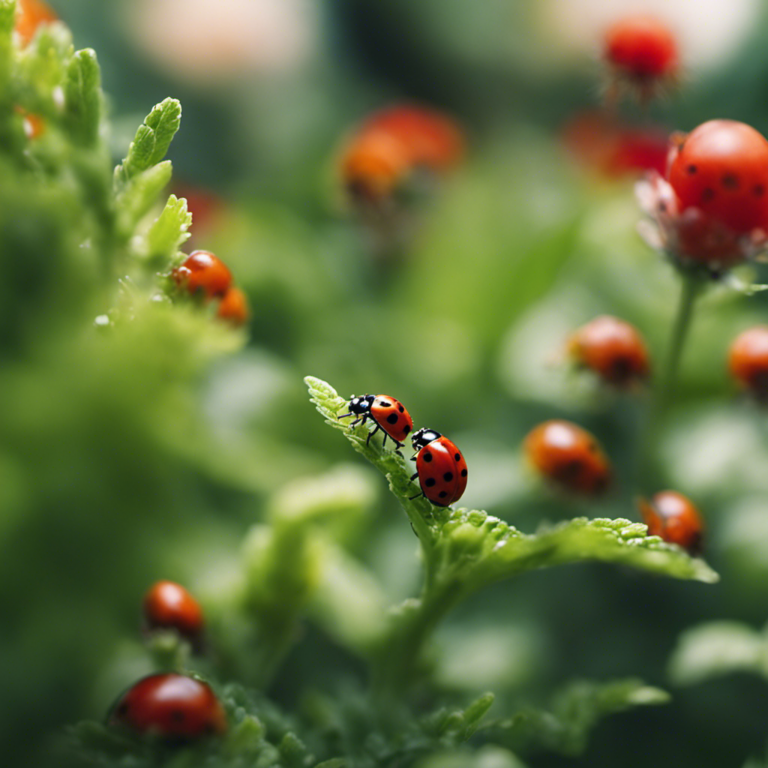Tired of dealing with pesky garden pests? Ready to protect your plants from their destructive ways? Look no further!
This curated guide is here to help you naturally banish those unwanted intruders from your garden. Say goodbye to harmful chemicals and say hello to a thriving, pest-free oasis.
We have you covered with natural solutions that will attract beneficial insects and implement companion planting strategies. Get ready to unleash your inner gardener and enjoy a lush, pest-free garden, the natural way.
Key Takeaways
To naturally get rid of garden pests, it’s important to first identify the specific pest problem you’re facing. Once you know what you’re dealing with, you can take steps to attract beneficial insects and use organic pest repellents. Another effective technique is companion planting, where you strategically plant certain species together to deter pests. Lastly, maintaining your garden properly through regular watering, weeding, and pruning can help prevent pest infestations.
Did you know that ladybugs, those cute little insects, can actually be a big help in controlling pests? Ladybugs can eat up to 5,000 aphids throughout their lifetime, making them a valuable ally in your garden.
By following these strategies, you can create a healthy and pest-free garden without resorting to harmful chemicals. It’s all about working with nature to maintain a balanced ecosystem in your garden.
Identify the Pest Problem
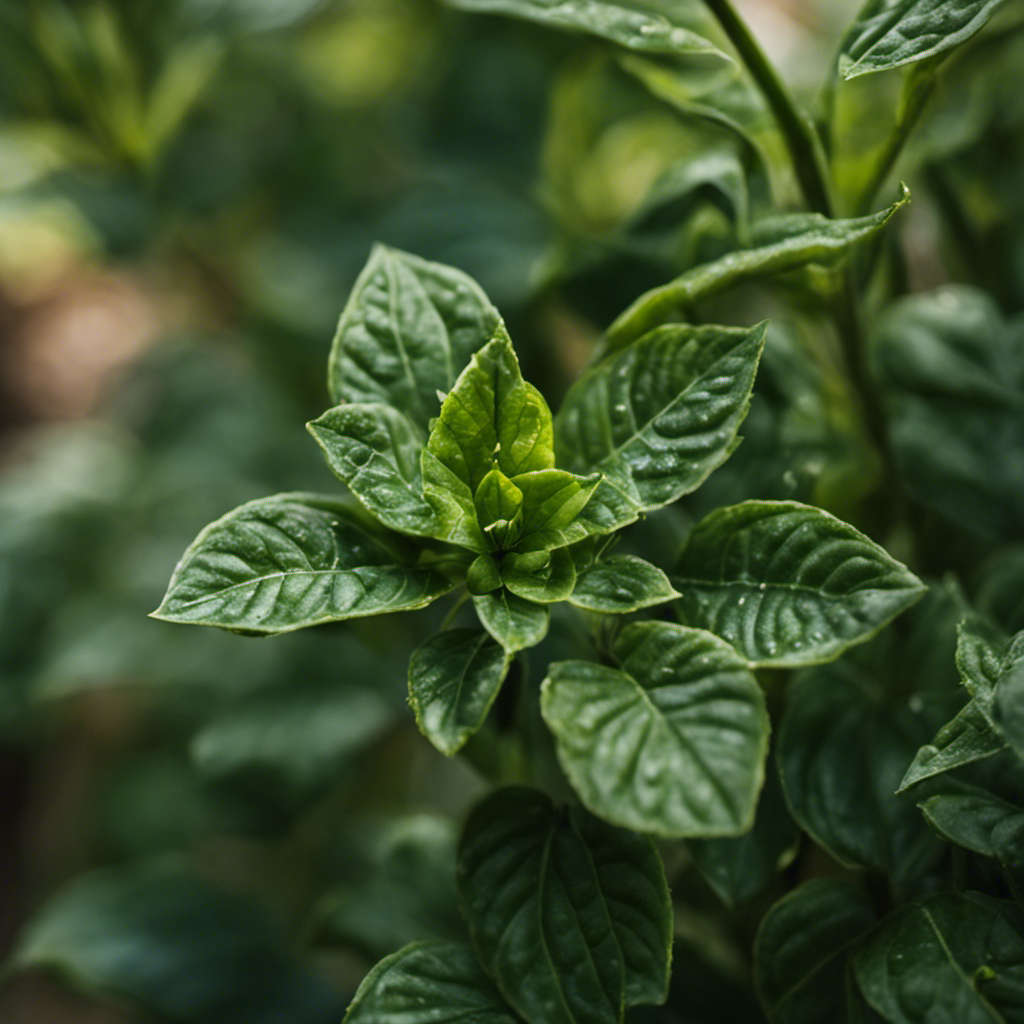
Identifying the pest problem is the first step in effectively addressing garden pests. Insects like aphids, caterpillars, and beetles, as well as rodents and birds, can be common garden pests. By accurately identifying the specific pest problem, you can choose the most appropriate natural pest control methods.
For instance, if aphids are an issue, you can attract ladybugs or lacewings to your garden as they’re natural predators of aphids. To address caterpillars, you can use floating row covers to protect your plants or manually remove them. Rodents can be deterred by using physical barriers such as fences or traps. Bird netting or scare devices can discourage birds.
Attract Beneficial Insects
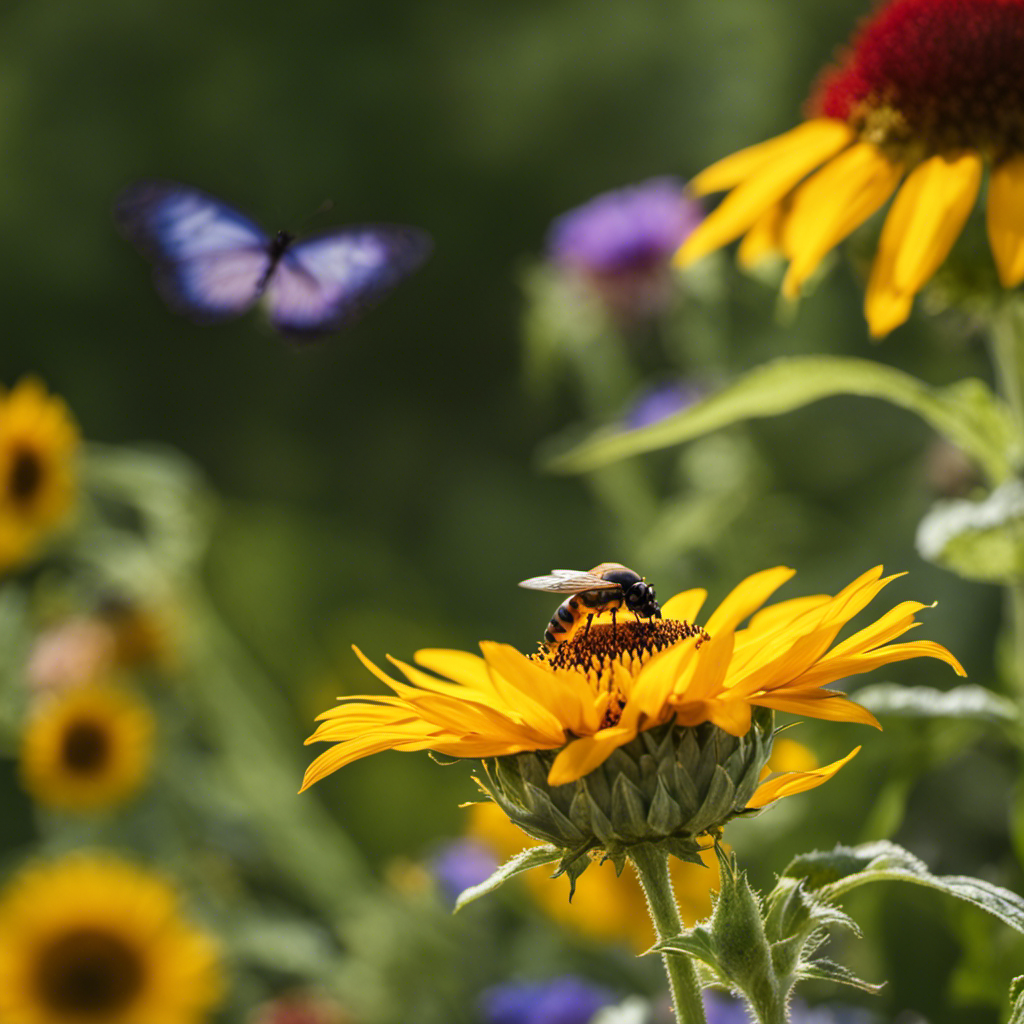
Attracting beneficial insects is essential for naturally controlling garden pests. By adding plants that are attractive to pollinators, you can create an environment that supports these helpful insects. Choose plants like bee balm, lavender, and sunflowers that provide nectar and pollen. These plants not only attract bees and butterflies but also other beneficial insects such as ladybugs and lacewings that prey on garden pests.
Along with planting the right flowers, it’s crucial to create habitats for beneficial insects. Incorporate features like bug hotels, rock piles, and shallow dishes filled with water to provide shelter and water sources.
Use Organic Pest Repellents
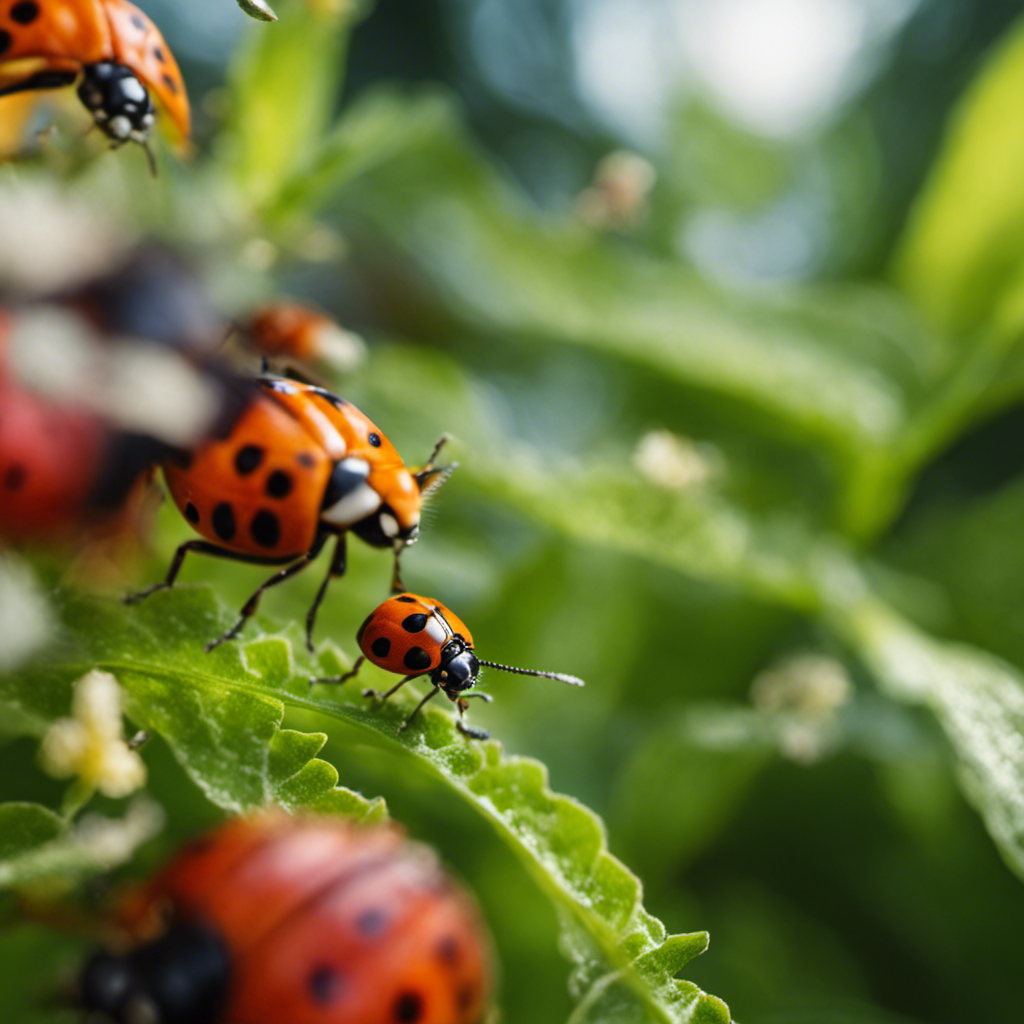
Keep garden pests away by using organic pest repellents. Instead of relying on harmful chemicals, you can protect your garden from destructive insects using natural remedies and homemade solutions.
One effective option is a mixture of garlic, onion, and cayenne pepper. Simply blend these ingredients with water and spray the solution onto your plants. The strong odor and taste will discourage pests from feasting on your garden.
Another natural repellent is neem oil, derived from the neem tree. It acts as an insect growth regulator, disrupting the pests’ life cycle. Dilute neem oil with water and spray it on your plants.
You can also make soap sprays by mixing dish soap with water or vinegar solutions to repel specific pests.
Implement Companion Planting Strategies
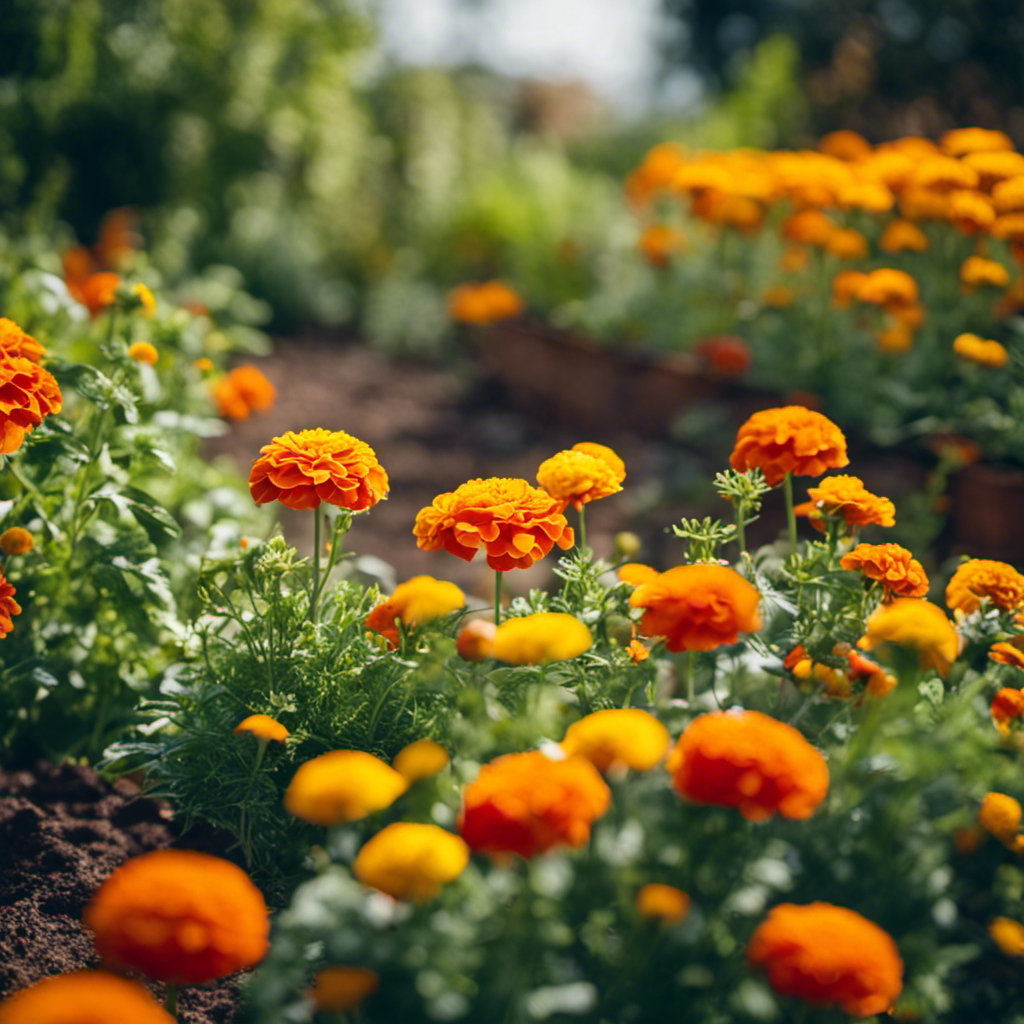
Implementing companion planting strategies in your garden can be a great way to maximize space and increase crop yields. By creating beneficial plant partnerships, you can create a harmonious environment for your plants. Here are three combinations that can help deter pests and attract beneficial insects:
-
Marigolds and tomatoes: Planting marigolds near your tomato plants can repel harmful insects like aphids and nematodes. Marigolds also attract beneficial insects such as ladybugs and hoverflies, which feed on pests.
-
Basil and peppers: Planting basil near your pepper plants can deter pests like aphids and spider mites. Basil also enhances the flavor of peppers and attracts pollinators like bees.
-
Nasturtiums and cucumbers: Nasturtiums act as a natural trap crop, attracting pests like aphids away from your cucumber plants. They also attract beneficial insects like bees and predatory insects that control pests.
Incorporating these companion planting techniques into your garden can create a balanced ecosystem that promotes healthy plant growth and reduces the need for chemical pesticides.
Practice Proper Garden Maintenance
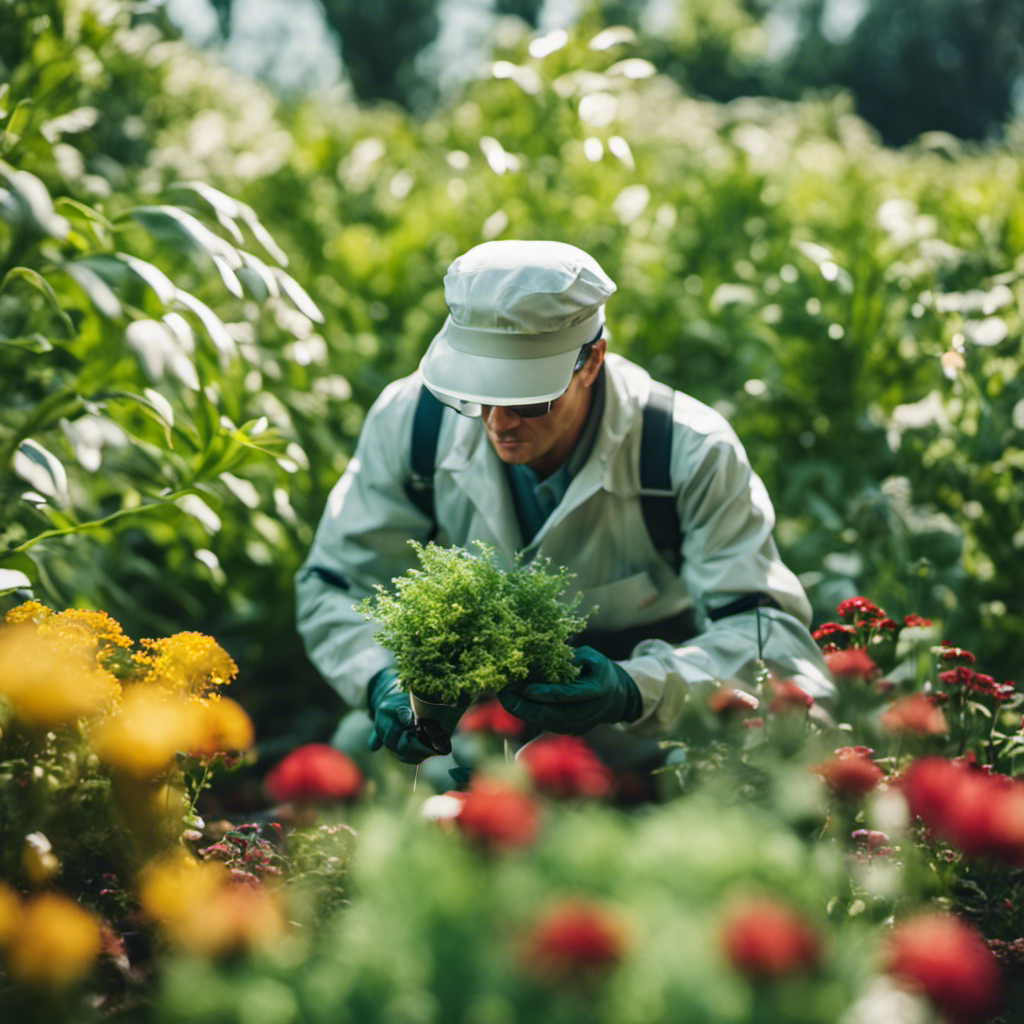
Maintaining a healthy garden and preventing pest infestations requires regular inspection and removal of damaged or diseased plants. This simple step is crucial for the overall health of your garden. By promptly removing any plants that show signs of damage or disease, you can prevent the spread of pests and diseases to healthy plants. Additionally, proper pruning techniques can improve the health and appearance of your garden. Regular pruning encourages strong growth and allows for better air circulation, reducing the risk of pests and diseases. Another important aspect of garden maintenance is ensuring soil health. Healthy soil provides a strong foundation for your plants, making them less susceptible to pests and diseases. You can maintain optimal soil health by adding organic matter and conducting regular soil testing.
To summarize the key practices for garden maintenance, refer to the table below:
| Garden Maintenance Practices |
|---|
| Regularly inspect and remove damaged or diseased plants |
| Practice proper pruning techniques |
| Ensure soil health by adding organic matter and regular soil testing |
Conclusion
To naturally banish garden pests, it’s crucial to identify the specific pest issue, attract helpful insects, use organic pest repellents, implement companion planting techniques, and maintain your garden properly.
Did you know that ladybugs, which are beneficial insects, can consume up to 5,000 aphids during their lifetime? This visual representation demonstrates the significant impact these insects have on controlling harmful pests in your garden.
By following these strategies, you can maintain a healthy and pest-free garden without resorting to harmful chemicals.
